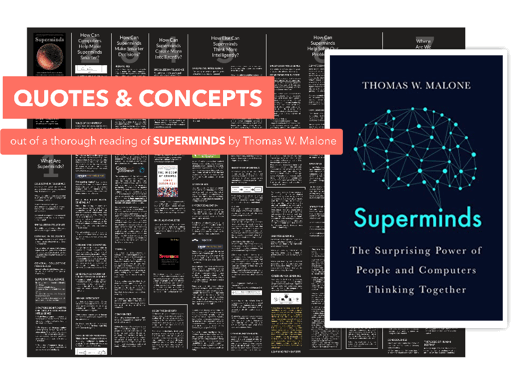A Spanish scientist records all his activities so he can learn how to live more effectively. But what do you gain from forensically tracking every part of your day?
Continue ReadingOne man’s 10-year experiment to record every moment
Great article about a serious life-logger who recorded 10 years of his life available on BBC.
Continue ReadingSuperminds
The wonderful essence of Tom’s book is to imagine how people and computers will interact on a massive scale to create intelligent systems.
Continue Reading